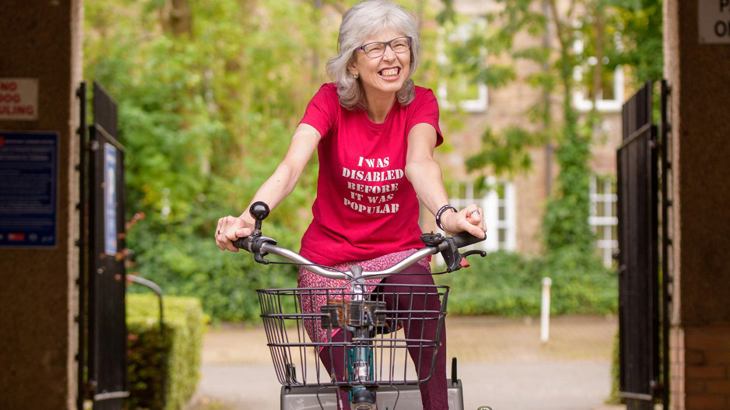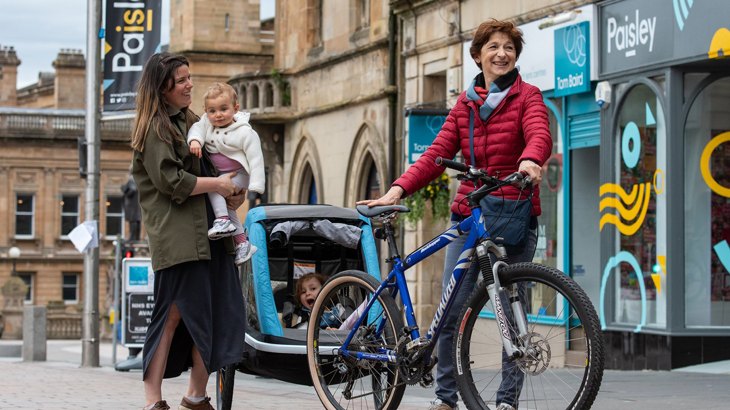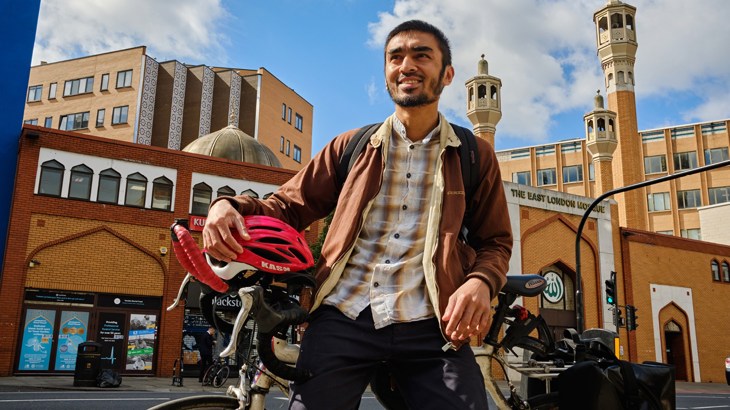We've teamed up with ARUP to create a guide to support people in local government and the transport sector to make cycling a more inclusive activity for everyone. Whilst our recommendations are primarily focused on the UK, they are equally applicable in cities and towns across the world. With the right political will, investment and knowledge cycling can help people from all backgrounds, ethnicities, ages, abilities and genders.

This guide is a call for people working in transport across the UK to ensure cycling is inclusive and helps address wider inequality within cities and towns.
We want to help make cycling attractive and accessible to everyone.
Together with ARUP - an independent team of specialists working across the Built Environment sector - we've created a guide to inclusive cycling for everyone.

Cycling for everyone: A guide for inclusive cycling in cities and towns
This guidance aims to share how we can make cycling more inclusive and how cycling can support more equitable cities and towns.

76% of women never cycle. But the appetite to do so is there. Our guide shows that 36% of women who never cycle would like to start.
Large unmet demand exists to cycle
Cycling policy has too often served the needs of people that are more likely to already cycle. People that are already privileged in society.
The potential to engage others is huge: 55% of people from ethnic minority groups who never cycle would like to start.
And 38% of people at risk of deprivation, 36% of women, and 31% of disabled people who do not cycle would also like to give it a go.
People want to cycle but we are not doing enough to address their needs. In fact, there is often a lack of data on who is cycling.
Very few cycling strategies and plans exist that focus on people and the diversity of people cycling.

Cycling must become more inclusive, and help address inequity in society. We make a number of recommendations for local and national governments in this new guide.
Our recommendations
This guide outlines a series of recommendations for local and national governments under three themes.
1. Improving governance, planning and decision making
We need to better ensure transport and cycling plans are based on addressing the needs of residents and reducing inequity across society.
2. Creating better places for everyone to cycle in
We must improve road safety, primarily through protected space for cycling, and low-traffic neighbourhoods. And we need to ensure cycling infrastructure is fully inclusive.
3. Welcoming and supporting all people to cycle
We need to ensure cycling is welcoming and celebrates diversity. Cost should not be a barrier to accessing a cycle, and free training should be offered to all children and adults.






